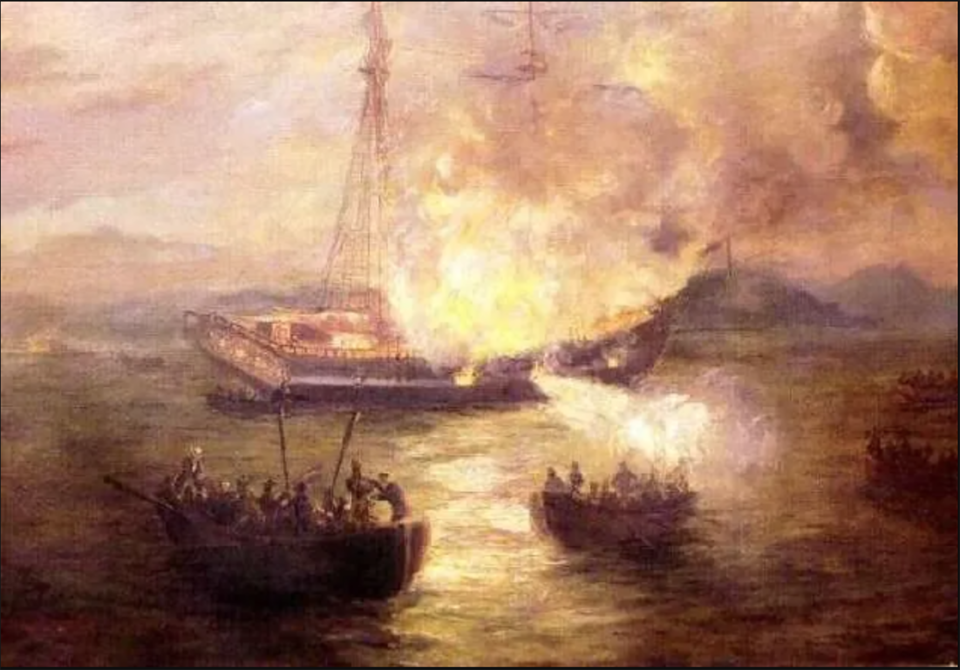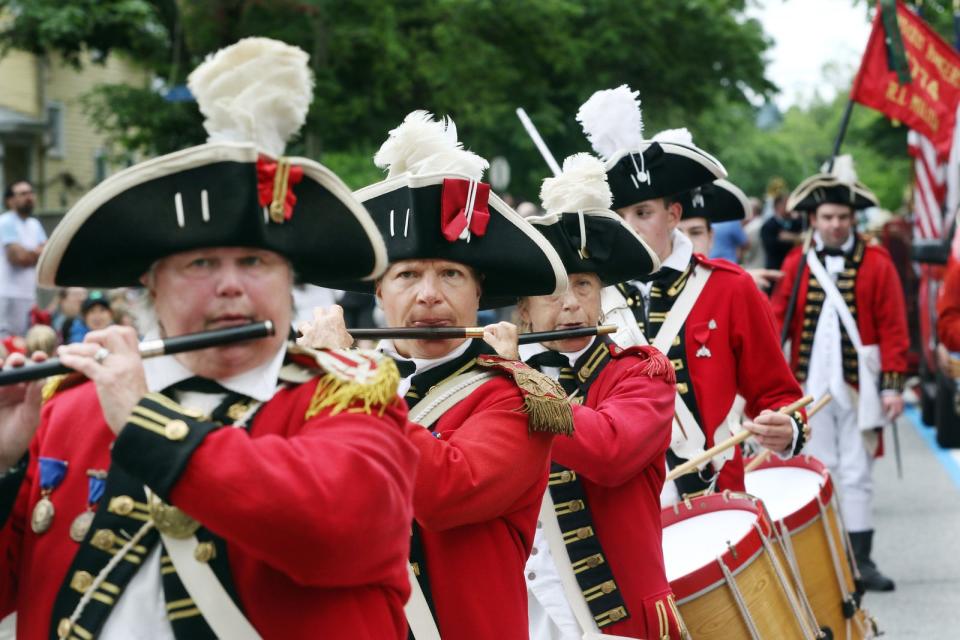If Rhode Island finds the HMS Gaspee, do the British want it back?
When a group of marine archaeologists recently announced the first scientific search for the shipwreck of the HMS Gaspee, it raised two key questions:
One: How much of the British revenue schooner could be found 250 years after Rhode Island colonists burned the ship to the waterline in one of the first acts of violence leading up to the American Revolution?
And two: If the archaeologists find something, will the British government want the Gaspee back?
Under maritime law, the shipwreck still belongs to Britain, so that country could certainly make a legitimate claim to any wreckage.
"I think we could claim it if we wanted to," Peter Abbott, the British consul general in Boston, told The Providence Journal. "But technically being able to do something is a bit different from actually doing so."

In any event, Abbott said, the British government is probably OK with the Gaspee never leaving Rhode Island. "I don't think there's any intention whatsoever to claim the ship, or, I should say, what's left of it."
What about significant artifacts, if they are found?
As an example, it's plausible — though highly unlikely — that the ship's flag could have survived at the wreck site, though everything would have had to go just right for that to happen. The flag, also called the "colors," would have to have broken free without being consumed by the fire. Then, it would have to have sunk to the bottom before currents could have carried it away or someone had fished it out of the water. Lastly, it would have had to be buried fairly quickly by silt on the bottom, which would have excluded oxygen needed by the organisms that decompose organic matter.
So, if against all odds, all of that happened, the colors, signifying the Gaspee's allegiance to Britain, could be found.
"I think we would be interested," Abbott said. "If the colors were found — and again I would be very surprised if they hadn't completely rotted away or been swept away out to sea — if they were found I would personally love to come down and see them."
250 years after colonists burned the Gaspee, no one has found the wreck. D.K. Abbass hopes to change that.
But, even then, Britain probably wouldn't want to claim them, as long as they were properly cared for.
"I don't think anybody would try and take them back to England or anything like that," Abbott said. "We would be interested in where they were put, where they were displayed. We would certainly celebrate their recovery, but I don't think there would be any attempt to take them back."
More Gaspee news: RI patriot says "cease and desist" to those denying Revolution's first shot was fired here
While Britain will certainly keep an eye on the search for the Gaspee, Abbott said his government probably won't contribute to the funding for the search. "There isn't the historical interest to pursue that."
Gaspee was not 'the turning point' toward American independence
"Rhode Island seems to take it pretty seriously," Abbott said.
But that doesn't seem to stretch beyond the state's borders, and certainly not across the Atlantic to England. Abbott, who has a doctoral degree from Cambridge University, said he had never heard of it until he was posted in Boston almost two years ago.
The diplomat was, well, diplomatic in discussing how the burning of the Gaspee properly fits into the history of America's move toward independence. "I don't think people look at the Gaspee and say that was the turning point," said Abbott.
Veterans Voice: Remembering how Rhode Islanders burned the British ship Gaspee 250 years ago
"I think the Gaspee is — rightly or wrongly — not in most histories of the American Revolution. That fact is regrettable to the people of Rhode Island, but I think that the Boston Massacre and the Tea Party and all of those other things unfortunately have sort of stolen the limelight slightly, even though the sinking and the burning of the Gaspee came before those two things," he said.
"It's significant. It is certainly one of the very earliest acts of hostility against the crown, against the British government, and so therefore should be seen in a significant light," Abbott said. "I think it probably deserves a little bit more attention."

Abbott said that he is looking forward to attending the Gaspee Days parade June 11, but won't be there the next day for the burning of an effigy of the Gaspee.
"Read into that what you will," he said. "I can't spend the whole day celebrating the burning of a British ship."
This article originally appeared on The Providence Journal: If RI finds the Gaspee ship, Britain could claim the wreckage

